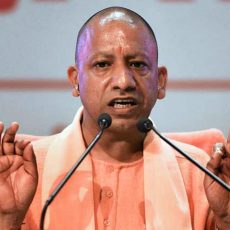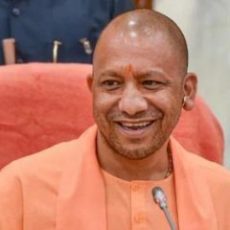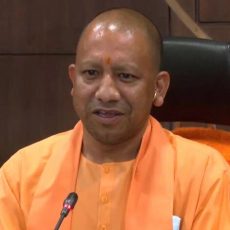LUCKNOW: Prioritization of agriculture was a promise made by many but executed only by the Yogi Adityanath government. Yogi’s recent announcement that the government will set up centres of excellence and hi-tech nurseries in all districts to boost horticulture and food processing shows that the welfare of farmers has not only been a slogan but a resolution for him.
Hi-tech nurseries have already been set up in Bahraich, Ambedkarnagar, Mau, Fatehpur, Aligarh, Rampur and Hapur while centres of excellence are being constructed in Chandauli, Kaushambi, Saharanpur, Lucknow, Kushinagar and Hapur.
The Indo-Israel Centre for Excellence has been established in Basti and Kannauj for fruits and vegetables, respectively, so that farmers get quality seedlings.
Even before taking over as the CM, Yogi constantly worked for the welfare of farmers. Since 2017, he has been keeping the interest of farmers paramount. In his first cabinet, Yogi waived off loans worth Rs 36,000 crore benefiting 86 lakh small and marginal farmers.
To generate employment and double the income of farmers, the UP government is turning to new approaches like expanding irrigation schemes, populararising new crops, and harnessing energy.
To make agriculture profitable, the government is connecting the youth with new technologies and encouraging them to be a part of the agriculture sector.
The central government has implemented the recommendations of the Swaminathan Commission report, pending for years, to enable farmers get fair price for their produce.
The Yogi government ensured that maximum farmers get the benefit of MSP. For this, the government made record purchase of wheat and paddy. Payment was also ensured in the bank accounts of farmers within 72 hours.
About 257 lakh metric tonnes of paddy was procured at MSP in 2021-22. Due to DBT, there were no leakages and beneficiaries increased from 14.87 lakh to 38.22 lakh.
Similarly, 219.12 lakh metric tonnes of wheat was procured from 47 lakh farmers. This is almost double the purchase as compared to previous government. The government is also procuring pulses and oilseeds at MSP since 2018-2019.
To boost cultivation of fruits and vegetables, the government freed 45 products from mandi fee during pandemic. Total 54 rural haats were constructed to help farmers earn competitive price.
For maximum production in minimum cost, the government provided 3.76 crore soil test cards to farmers.
The government has further encouraged the strategy of ‘Lab to Land’ which entails that only when research on farming in laboratory reaches the fields, that the farmers get real benefits. The government has made this slogan a reality by establishing 20 KVKs (Krishi Vigyan Kendras), taking the number from 69 to 89.
At least 336 Krishi Kalyan Kendras have been planned, of which 181 have been made, 100 are under construction and the process for 55 has been initiated. Through ‘The Million Farmers School’ at the beginning of every cropping season, lakhs of farmers are being made aware of latest farming techniques and government schemes.
The government now needs to focus on implementing land health improvement programmes, increasing biomass carbon in soil, lowering pH and linking agriculture with tourism.
More farmers need to be trained in chemical-free farming. To promote natural farming and innovative agriculture, a fund of Rs 82.83 crore has been approved by the Centre for 35 UP districts under the Bharatiya Prakritik Krishi Paddhati Scheme.
I proved that where there is intent and hardwork anything is possible when I produced water chestnuts in the field instead of pond. I hope to work alongside the government to help more farmers replicate the same which will increase the cultivation of water chestnuts and lotus.




